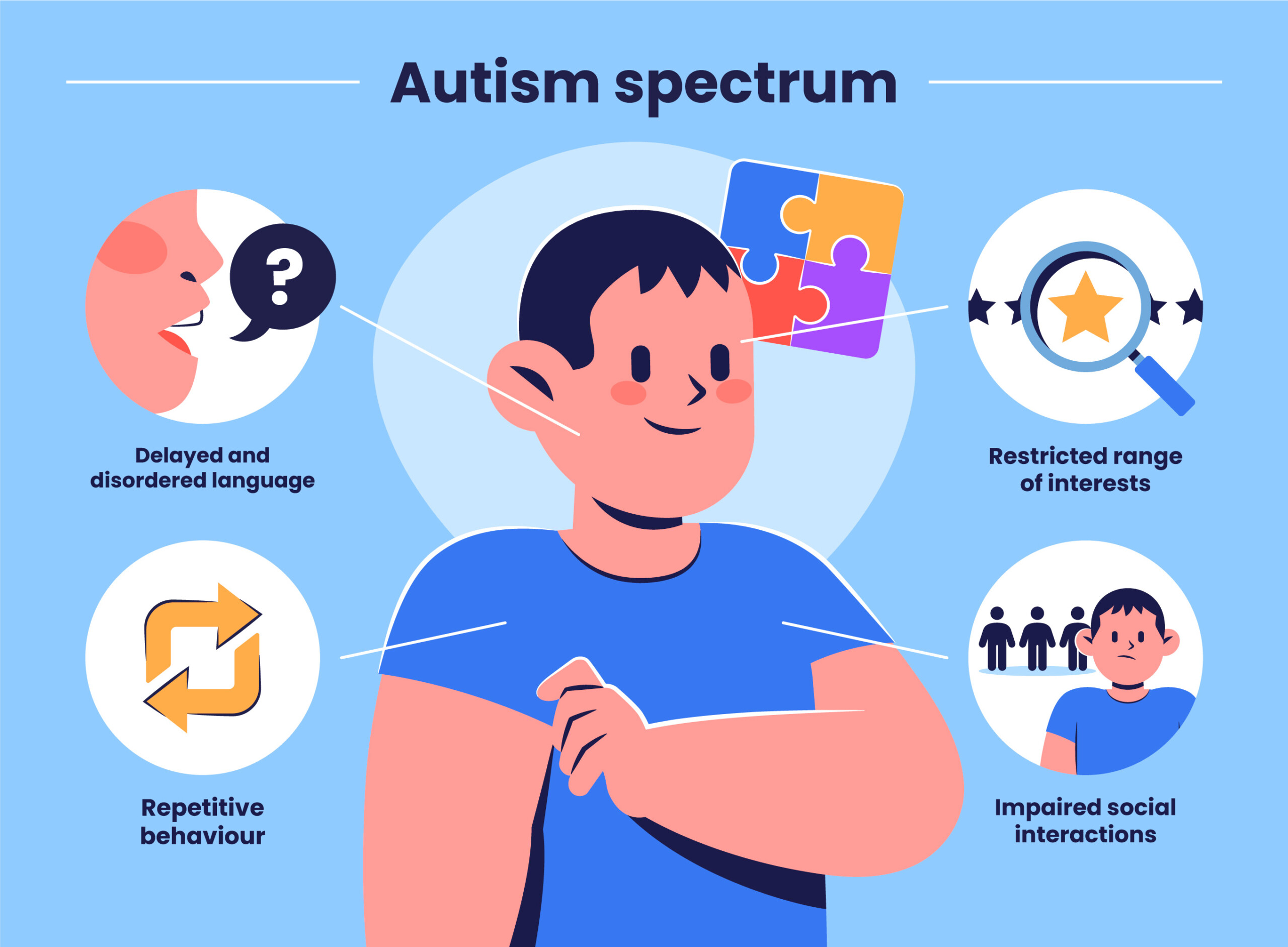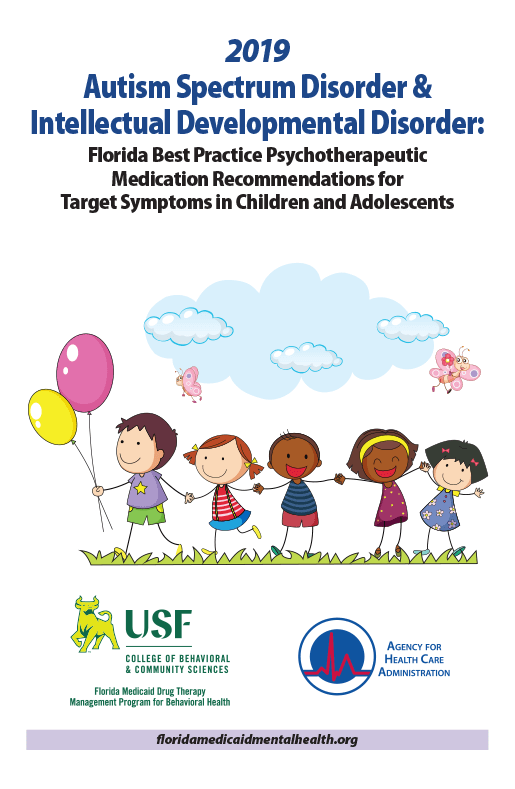How Autism Spectrum Therapies approach challenges in expression
How Autism Spectrum Therapies approach challenges in expression
Blog Article
Key Indications and Signs And Symptoms to Recognize in People With Behavioral Autism
When you encounter a person with behavior autism, identifying key indicators and signs and symptoms is necessary. Additionally, sensory level of sensitivities can lead to frustrating experiences.
Difficulties in Social Communications
When you interact with somebody on the autism range, you could notice they battle with social signs and communication. These challenges can make social communications really feel frustrating for them. You might see them preventing eye contact or standing as well close or as well away throughout discussions, which can create misunderstandings. They might not detect body language or faces, making it harder for them to gauge exactly how others are really feeling.
In addition, you might find that they favor routines and familiar settings, which can limit their readiness to take part in brand-new social circumstances. When they do involve, they may discuss their passions in great detail without noticing if you're interested. This can lead to prejudiced discussions that leave you feeling separated. Comprehending these difficulties can assist you approach interactions with empathy and perseverance, promoting an extra comfy setting for both of you.
Trouble With Verbal and Non-Verbal Communication

Acknowledging these signs is necessary, as it helps you much better support and engage with individuals on the autism range. By comprehending their communication challenges, you can promote a lot more significant connections and provide a much more supportive atmosphere.
Repeated Habits and Routines
Communication challenges often accompany other signs of autism, such as recurring behaviors and a solid preference for regimens. You could notice that individuals with autism commonly take part in certain, repetitive actions, like hand-flapping, shaking, or repeating phrases. These habits can supply convenience and a feeling of control in an usually frustrating world.
Regimens are similarly crucial; lots of people prosper when they comply with a structured routine. You might discover that modifications to these regimens can lead to significant distress. If they have a daily routine of consuming breakfast at a details time or adhering to a specific course to school, any interruption can create anxiety.
Recognizing these patterns aids you recognize their behavior and give assistance. By accommodating their need for routine and enabling recurring actions, you can develop a much more comfortable atmosphere that reduces their obstacles.
Sensory Sensitivities

Common Sensory Triggers
Sensory sensitivities can considerably influence everyday life for individuals with autism, as specific stimulations often set off overwhelming reactions. Usual sensory triggers include loud noises, bright lights, and strong scents. Understanding these triggers can assist you handle your atmosphere much better.
Behavior Reactions Explained
Recognizing your behavioral responses to sensory sensitivities is essential, as they typically disclose how you interact with the world. You may see that particular noises, lights, or textures bewilder you, resulting in anxiety or pain. When confronted with these stimulations, you could take out, cover your ears, or perhaps respond strongly. These feedbacks aren't simply traits; they're your way of managing overstimulation. You might also discover on your own seeking particular sensory experiences, like deep pressure or silent atmospheres, to help ground yourself. Recognizing these patterns assists you understand your needs much better and can direct how you interact them to others. By recognizing your sensory level of sensitivities, you can work in the direction of creating a setting that feels much more workable and comfortable for you.
Coping Strategies Review
Identifying your sensory sensitivities is just the initial step; currently it's time to explore coping approaches that can aid you take care of those experiences effectively. Begin by creating a sensory toolkit tailored to your needs. Developing an organized routine can additionally offer predictability, reducing anxiousness around sensory overload.
Restricted Interests and Emphasis
While many individuals develop a broad range of interests, those with autism commonly show restricted passions and an intense concentrate on particular topics. You could observe that somebody with autism can spend hours diving into their favorite subject, whether it's a certain kind of train, a specific motion picture, or a clinical concept. This intense emphasis isn't simply a hobby; it can become a central part of their identity and social interactions.
You might discover that conversations rotate around these passions, and they might have a hard time to engage in more comprehensive topics. By understanding and recognizing these restricted interests, you can cultivate a helpful environment where they really feel valued and comprehended, allowing for even more significant links and communications.
Emotional Guideline Problems
Individuals with autism often encounter obstacles in emotional regulation, which can be affected by their extreme focus on certain rate of interests. You may discover that when a person is deeply taken part in a recommended activity, they can experience strong emotions, whether exhilaration or disappointment. When things don't go as prepared., this strength often makes it hard for them to shift gears or manage their feelings - Autism Spectrum Therapies.

Variability in Developmental Landmarks
When it involves developmental milestones, you'll observe that individuals with autism frequently reveal a variety of irregularity. Some may strike turning points on schedule, while others could drag or progress at a various pace. As an example, you might see a youngster stand out in language abilities however have problem with social interactions. This disparity can be complex, as conventional standards don't always use.
It's essential to acknowledge that each individual's trip is special. Some may establish complex abilities early, only to deal with challenges in the future. Others may take longer to attain basic turning points yet then flourish in details locations. Observing these patterns can help you comprehend their toughness and needs better.
Frequently Asked Concerns
Just How Is Autism Diagnosed in Kid and Grownups?
To identify autism in children and grownups, specialists assess actions, interaction skills, and social communications. They commonly use standard tests, interviews, and monitorings to figure out if a private fulfills the requirements for autism spectrum condition.
Exist Various Kinds Of Autism Spectrum Disorders?
Yes, there are various kinds of autism range conditions, including Asperger's disorder and pervasive developing disorder-not otherwise specified. Each kind varies in severity and characteristics, so understanding these differences can aid you get more info much better support people with autism.
What Treatments Work for Individuals With Autism?
When considering effective treatments for people with autism, you'll find alternatives like Applied Habits Analysis, speech treatment, and work-related therapy. Each approach can aid enhance communication, social abilities, and everyday functioning customized to private needs.
Can People With Autism Lead Independent Lives?
Yes, individuals with autism can lead independent lives. With the right assistance, skills training, and resources, you can aid them establish self-sufficiency, manage everyday tasks, and grow in numerous atmospheres, fostering their freedom.
Just How Can Families Assistance Liked Ones With Autism?
You can support your enjoyed ones with autism by producing a structured setting, motivating their interests, practicing perseverance, promoting interaction, and advertising social abilities. Celebrate their achievements, regardless of exactly how small, and construct a supportive area.
Although numerous people on the autism range can utilize and recognize language, they often deal with significant obstacles with both non-verbal and verbal communication. Recognizing these indications is important, as it assists you much better support and engage with people on the autism range. You may see that people with autism usually engage in particular, repetitive activities, like hand-flapping, shaking, or repeating phrases.Sensory sensitivities can significantly influence day-to-day life for individuals with autism, as certain stimuli commonly cause overwhelming reactions.When it comes to developmental milestones, you'll discover that individuals with autism commonly reveal a vast range of variability.
Report this page